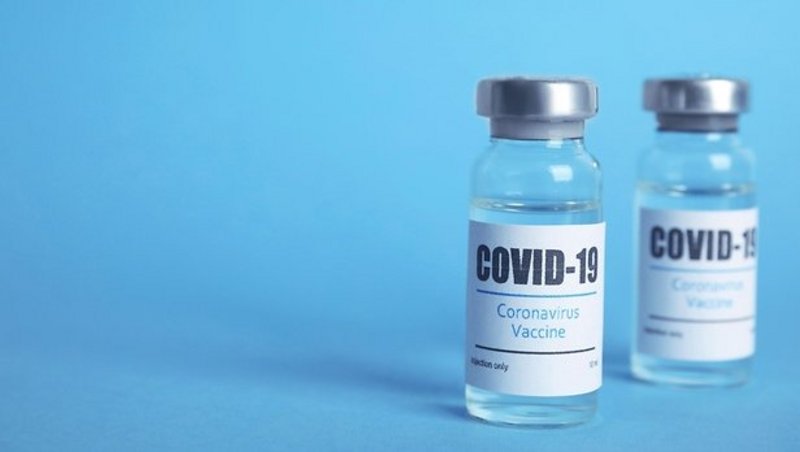COVID-19 Vaccine Information
The safety of our employees is our primary concern at Continental. We believe the COVID-19 vaccine is an important tool to help us get back to normal, in addition to wearing masks, maintaining distance from others and following hygienic practices. On this site, you can find a suite of information and materials about the COVID-19 vaccine to support you and your family.
The information on this site is sourced from various health organizations. This guidance may change as information evolves and more vaccine types become available. Continental encourages employees to do their own research on the COVID-19 vaccine before making an informed decision.
COVID-19 Vaccine Stories: What's Your "Why?"
COVID-19 Vaccine Informational Sessions
Continental and Dr. Mary Kay O'Neill, Partner of Health and Benefits at Mercer, recently hosted informational webinars about the COVID-19 vaccine. With more than 30 years of health care experience, Dr. O'Neill addressed key questions and concerns about the vaccine.
Watch the webcast recordings to learn more by clicking on the links below. We encourage you to share the videos with your family and friends, too!
Mary Kay O’Neill, MD, graduated from the University of Washington where she earned an MBA, an MD and a BS in Biology. As Senior Clinical Advisor for Mercer Health & Benefits, Dr. O’Neill leverages her clinal strategy and operations experience to drive Mercer’s value-based care initiatives and provide strategic advice and health care data analysis for clients. Most recently, she was Chief Medical Director at Coordinated Care in Tacoma, WA, responsible for forming strategic partnerships with community organizations and network partners and developing benefit design and services. Prior to that, Dr. O’Neill held leadership positions within Regence BlueShield, CIGNA, and the Washington State Health Care Authority.
Since February 2020, Dr. O’Neill has served on the COVID-19 response team working across Mercer and Marsh McLennan on issues related to the evolving understanding of the virus, testing and treatment, public health issues as well workforce health and safety, including protocols for return to work and assessing the long term medical and behavioral health impact of the pandemic.
COVID-19 Vaccine Overview
To understand how COVID-19 vaccines work, it helps to first look at how we can become infected and how our bodies fight illness.
Very simply stated the coronavirus starts with droplets or aerosols from an infected person’s cough, sneeze or breath. It infects your body by attacking healthy cells. It attaches to the spiky surface proteins, especially those in your lungs. When germs, such as the virus that causes COVID-19, invade our bodies, they attack and multiply. This invasion, called an infection, is what causes illness.
Our immune system uses several tools to fight infection. Blood contains red cells, which carry oxygen to tissues and organs, and white or immune cells, which fight infection. Different types of white blood cells fight infection in different ways:
- Macrophages are white blood cells that swallow up and digest germs and dead or dying cells. The macrophages leave behind parts of the invading germs called antigens. The body identifies antigens as dangerous and stimulates antibodies to attack them.
- B-lymphocytes are defensive white blood cells. They produce antibodies that attack the pieces of the virus left behind by the macrophages.
- T-lymphocytes are another type of defensive white blood cell. They attack cells in the body that have already been infected.
The first time a person is infected with the virus that causes COVID-19, it can take several days or weeks for their body to make and use all the germ-fighting tools needed to get over the infection. During this time is when people may display signs and symptoms of illness. After the infection, the person’s immune system remembers what it learned about how to protect the body against that disease.
The body keeps a few T-lymphocytes, called memory cells, that go into action quickly if the body encounters the same virus again. When the familiar antigens are detected, B-lymphocytes produce antibodies to attack them. Experts are still learning how long these memory cells protect a person against the virus that causes COVID-19.
The vaccines are being developed utilizing one of three platforms. mRNA vaccines, Protein subunit vaccines and vector vaccines. While each is slightly different the main purpose of all of them is to prevent the virus from being able to attach to the spiky surface proteins. In each section below you can find helpful information for you and your families as we navigate this next phase of the Coronavirus Pandemic.
Vaccine Types
Understanding How COVID-19 Vaccines Work
This web page explains how the body fights infection and how COVID-19 vaccines protect people by producing immunity. It also describes the different types of COVID-19 vaccines that currently are available or are undergoing large-scale (Phase 3) clinical trials.
Understanding COVID-19 mRNA Vaccines
This web page provides information about mRNA vaccines generally and about COVID-19 vaccines that use this new technology specifically.
Understanding Viral Vector COVID-19 Vaccines
This web page provides information about viral vector vaccines generally and about COVID-19 vaccines that use this new technology specifically.
Authorized and Recommended Vaccines
As COVID-19 vaccines are authorized and then recommended for use in the Americas, it will be important to understand what is known about each vaccine. CDC will provide information on who is and is not recommended to receive each vaccine and what to expect after vaccination, as well as ingredients, safety, and effectiveness.
| Country | Vaccine |
| Canada, USA, Mexico | Pfizer-BioNTech |
| Canada, USA | Moderna |
| Mexico | AstraZeneca |
| Mexico | Sputnik V |
| Mexico | CanSino Biologics Covidicea |
| USA |
To track vaccines during the clinical trial, click here.
Information pulled from the CDC website.
It helps protects you and others from getting COVID-19
- All COVID-19 vaccines currently have been shown to be highly effective at preventing COVID-19. Facts about COVID-19 vaccines.
- All COVID-19 vaccines that are in development are being carefully evaluated in clinical trials and will be authorized or approved only if they make it substantially less likely you’ll get COVID-19. Learn more about how federal partners are ensuring COVID-19 vaccines work.
- Based on what we know about vaccines for other diseases and early data from clinical trials, experts believe that getting a COVID-19 vaccine may also help keep you from getting seriously ill even if you do get COVID-19.
- Getting vaccinated yourself may also protect people around you, particularly people at increased risk for severe illness from COVID-19.
- Experts continue to conduct more studies about the effect of COVID-19 vaccination on severity of illness from COVID-19, as well as its ability to keep people from spreading the virus that causes COVID-19.
COVID-19 vaccination is a safer way to help build protection
- COVID-19 can have serious, life-threatening complications, and there is no way to know how COVID-19 will affect you. And if you get sick, you could spread the disease to friends, family, and others around you.
- Clinical trials of all vaccines must first show they are safe and effective before any vaccine can be authorized or approved for use, including COVID-19 vaccines. The known and potential benefits of a COVID-19 vaccine must outweigh the known and potential risks of the vaccine for use under what is known as an Emergency Use Authorization (EUA). Watch a video on what an EUA is.
- Getting COVID-19 may offer some natural protection, known as immunity. Current evidence suggests that reinfection with the virus that causes COVID-19 is uncommon in the 90 days after initial infection. However, experts don’t know for sure how long this protection lasts, and the risk of severe illness and death from COVID-19 far outweighs any benefits of natural immunity. COVID-19 vaccination will help protect you by creating an antibody (immune system) response without having to experience sickness.
- Both natural immunity and immunity produced by a vaccine are important parts of COVID-19 disease that experts are trying to learn more about, and CDC will keep the public informed as new evidence becomes available.
COVID-19 vaccination will be an important tool to help stop the pandemic
- Wearing masks and social distancing help reduce your chance of being exposed to the virus or spreading it to others, but these measures are not enough. Vaccines will work with your immune system so it will be ready to fight the virus if you are exposed.
- The combination of getting vaccinated and following CDC’s recommendations to protect yourself and others will offer the best protection from COVID-19.
- Stopping a pandemic requires using all the tools we have available. As experts learn more about how COVID-19 vaccination may help reduce spread of the disease in communities, CDC will continue to update the recommendations to protect communities using the latest science.
Information pulled from the CDC website. For more information, click on your country: Canada, USA, Mexico.
It’s Time to Get the Vaccine - What You Need to Know
Each state has identified timing for vaccine distribution to citizens based on criteria. Some states are asking for proof of eligibility for some items like, but not limited to, essential workers, critical infrastructure and manufacturing. Due to the complexity of the vaccine phase definitions from state to state letters of eligibility can be requested through your HR Business Partner or EHS Manager at your location. Letters will be specifically created for job functions at each location based on an evaluation of status by the Legal Department. Please refer to the postings and communication tools in your location for more information on this and other topics related to the COVID-19 vaccine.
Since each country and state is handling distribution of the vaccine differently, procedures for on-site vaccines have been provided to your location. Location leadership will identify what type of processes are available for each site. Employees will be notified by their HR Business Partner regarding how vaccines will be made available to employees. Some states will distribute vaccines through state health departments, while others will distribute the vaccine through local municipalities or county health departments.
If you are currently working at a location, look for posters the look like the below at your location, for vaccine information.
For those telecommuting and Field Sales, you’ll get vaccine information from your HR Business Partner/Communications team via your normal communication channels (e.g. location Intranet page, email, etc.).
Currently, Continental locations in the Americas cannot purchase vaccine outright. We are working with government groups, current vendors, health department, etc. to try to make the vaccine as readily available to our employees as possible. Stay tuned and monitor this page for future changes.
Following CDC guidelines, employees should get two shots in the series, unless a doctor or provider says not to take the second dose, to ensure the vaccine works to its full potential.
We ask that employees download the respective app for your country listed below. Utilize the app for helpful tips and information post vaccine. It will also notify you when your second shot in the series is due and be can be a useful tool in reporting any side effects you experience to the CDC.
It take time for body to build immunity after getting shot. Be sure to continue to practice social distancing and other protective measures.
To view vaccines currently approved by country including vaccines in earlier stages of development through the clinical trial process, click here.
Canada | Canadian Adverse Events Following Immunization |
U.S. | V-safe app |





